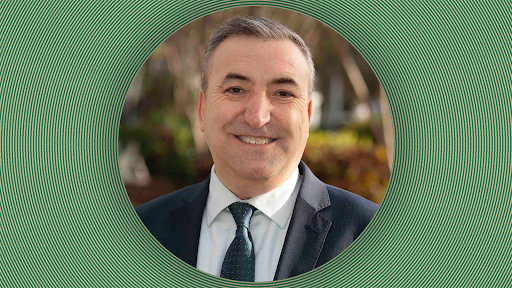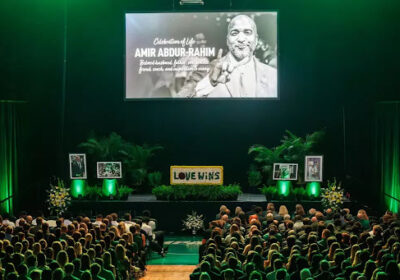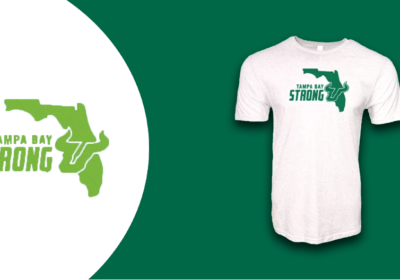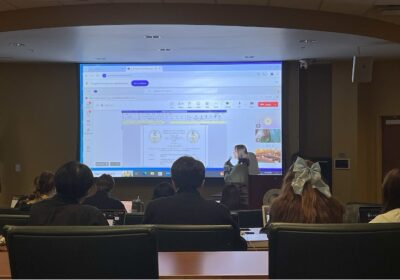Q&A: Aurelio Valento talks about goals in newly-created position

In order to escape a military coup in Portugal in 1974, Aurelio Valente immigrated to the U.S. at just five years old.
Growing up in an immigrant community in Massachusetts, Valente was the first among over 30 of his cousins to attend college. Since then, Valente has worked his way up in higher educational administrative positions.
In 2024, the new role of a regional assistant vice chancellor for undergraduate studies on the USF St. Pete campus was filled by Valente.
The new position was “redesigned” from an existing role when St. Pete’s advising system followed a campus-wide approach. Advising is now based within individual academic colleges, according to Valente.
What inspired you to pursue a career in university administration?
I began working in higher education immediately after my own graduation from college because of the positive and supportive environment I experienced as an undergraduate. I wanted to pay this forward, [so] for 30 years higher education has been my professional calling.
As an undergraduate and graduate student at UMass Dartmouth, I felt nurtured and enabled. After graduation, I was called to do what I could to replicate that for others, especially first-generation college students for whom degree attainment can have a disproportionately positive impact on their social and economic mobility, and prosperity for a positive future. I believe strongly that education lifts up individuals, their families and their communities.
As the new regional assistant vice chancellor, what are your primary responsibilities and goals?
Specifically, I am working to create parity of services and align programs on the St. Pete campus with Undergraduate Studies on the Tampa campus.
I’m working to rebuild Academic Success Advocacy on our campus, provide campus-based support for excellence in academic advising and deliver exemplary learning support through the Debbie Nye Sembler Student Success Center.
Growing up, were there any particular experiences or influences that shaped your approach to education and leadership?
My personal mission is to promote student-first strategies and innovations to drive social and economic mobility through degree attainment. This mission is centered in the opportunities that were offered to me as a college student through faculty and staff that [saw] I had the potential to succeed.
Among the 30+ cousins in my extended family, I was the first of my generation of new Americans to go to college, and the belief that an education can help ensure access to the American Dream, that whatever happened no one could ever take my education away. Since then, more of my cousins have gone to college, others didn’t, and we have all contributed positively to our communities.
In my own experience as an undergraduate, I distinctly remember my Dean of Students at UMass Dartmouth attending my Naturalization Ceremony when I became an American citizen during my undergraduate experience. His presence in this ceremony spoke to me deeply as a gesture of care and support campus leaders can demonstrate for their students.
What has been your journey in the academic world so far?
My family immigrated to Massachusetts where there is a vibrant Portuguese community of immigrants. I was expected to go to work in some of the same mills and factories my family, and many immigrants were working in. 14 of my family members, my brother and mother included, have worked for the same factory that made golf balls.
As I was looking for a job after high school, a mentor encouraged me to go to college instead, and I took his advice. I continued in college, and a student peer encouraged me to get involved in student government and as a resident assistant, I took their advice. These two moments of advice started my journey to higher education, and the career I enjoyed for three decades.
How do you plan to engage with students and faculty to foster a collaborative and inclusive campus environment?
I’m on my second month, and I have spent my first month listening and getting to know the talented faculty and staff at USF – both at St. Pete and Tampa campuses – since I started during the winter break. With students returning to campus for the spring term, I’m looking forward to meeting more students and learn from them how we can help remove barriers and work collectively to promote their success.






